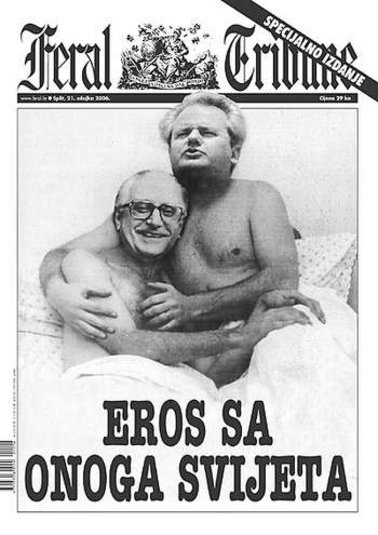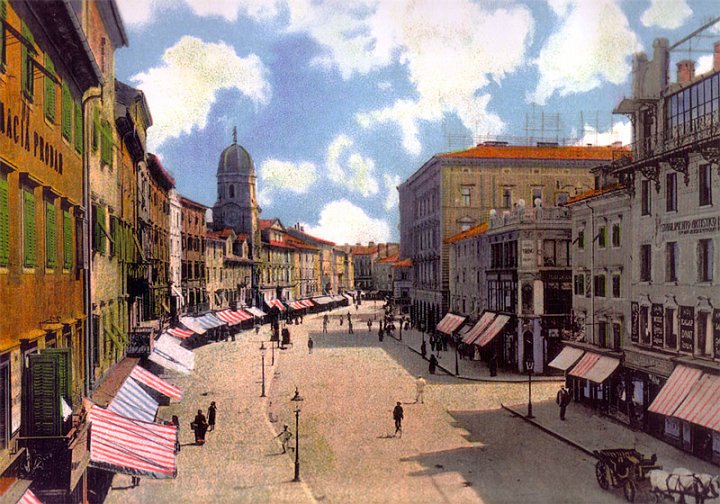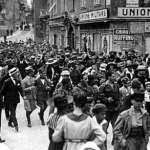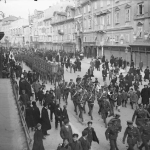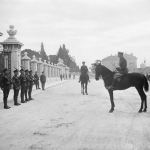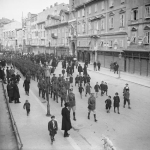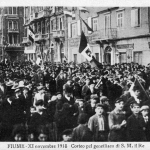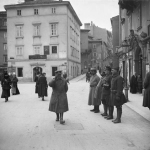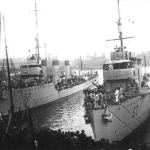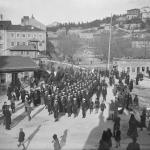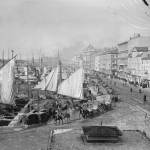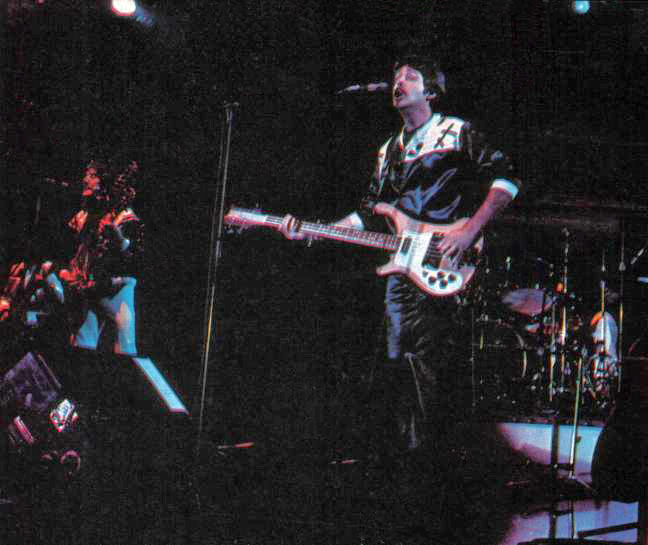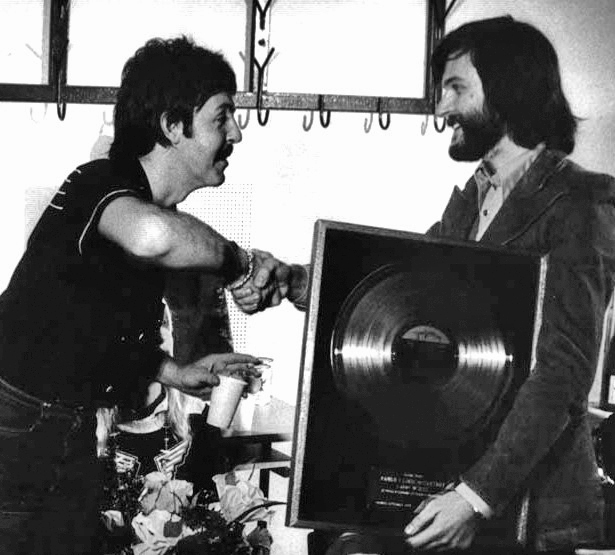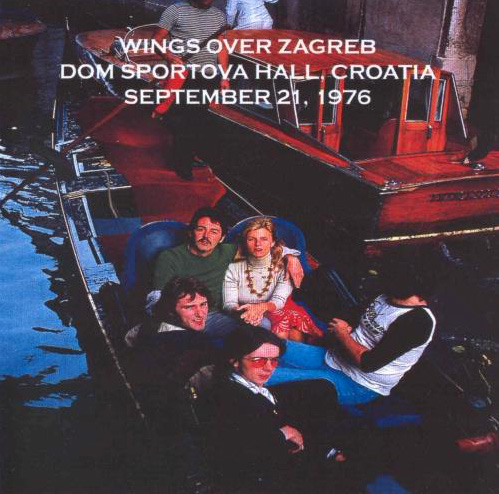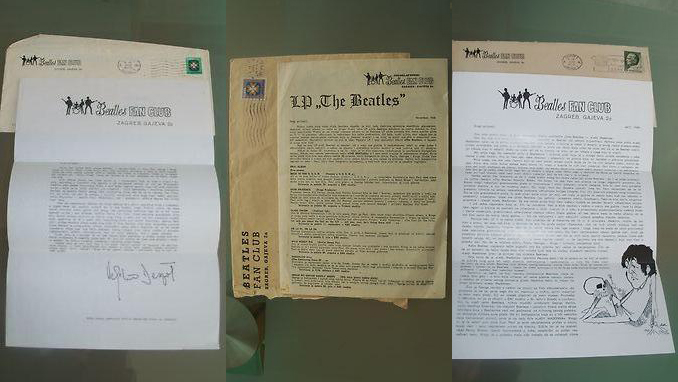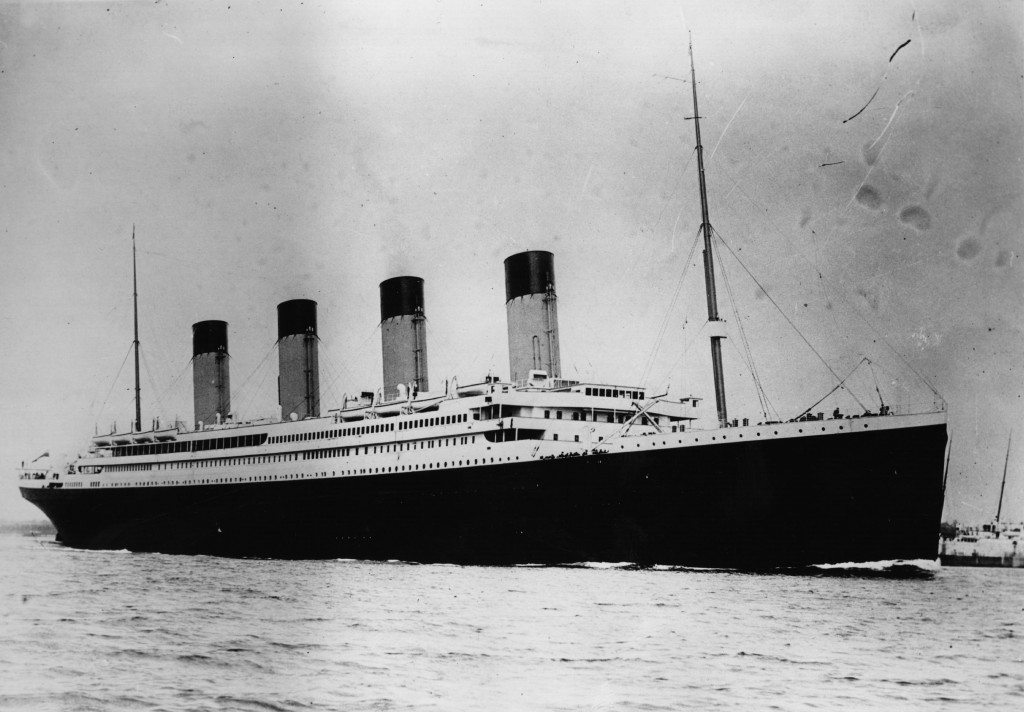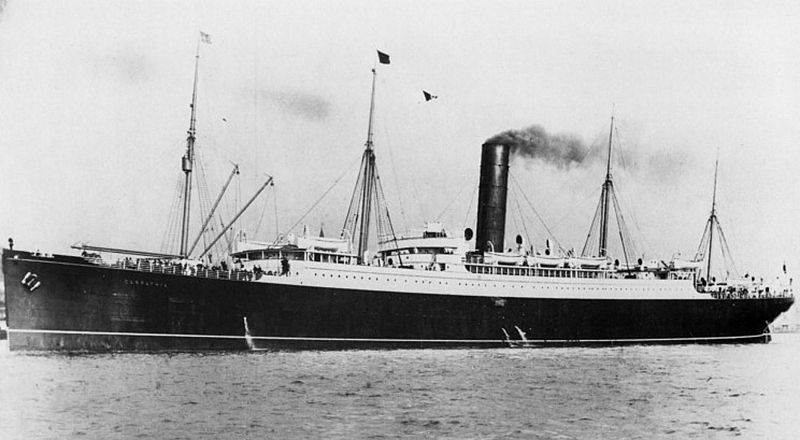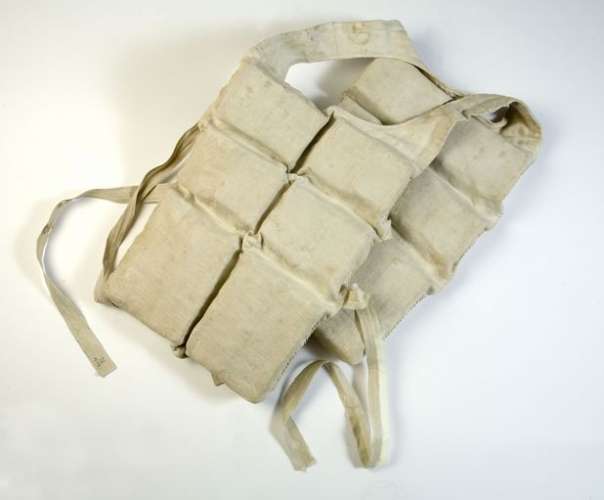Tag Archives: croatia
Sarah & The Romans interview
WE PRESENT SARAH & THE ROMANS –
a merry group from Rijeka who are winning over the world!
- 10th October 2017 – Novi List, Rijeka, Croatia. Interview with Ivana Kocijan.
Coming soon from the German publishing house AGR TV Records in Hamburg will be ‘First Date’ the debut album by the Croatian group Sarah & The Romans. To find out how this cooperation came about, what it means to them, what they sing about in their songs, we spoke to band members: Sara Blažić, Goran Troha and Igor Willheim.
Igor: Six months ago we began to send emails and singles to Europe and America, looking for a publisher for our album. Publishing houses from Canada, America, Sweden and Germany were interested. German companies were the most interested in this regard, and over a few months we reached an agreement with one of them, signed a deal and began the production of the album.
Goran: We were not trying to look for a publisher in Croatia because all the material is aimed at the foreign market, the songs are in English, and the music is such that it is more popular abroad than here.
When will the album be published and what can we find on it? Who are your songwriters?
Goran: We have 11 songs on the album. Of those 10 are original compositions, whilst one is a version of an instrumental on the theme of the movie ‘Kekec’ (‘Good Will is The Best’) which we have arranged ourselves. As for the writers, I can say there are many, especially of the lyrics. As the lyrics are in English, we strive that they are written by native speakers. And in this we also have a translator who is following us, Martin Mayhew, an Englishman with a Rijeka address. Who as a translator and musician, has fitted very well into our story. The music and arrangements are written by members of the band.
Igor: The album should be released on 27th October, and in the deal there is also a second album, which we are already working on, all the demo material has been recorded. We are still not sure of the title.
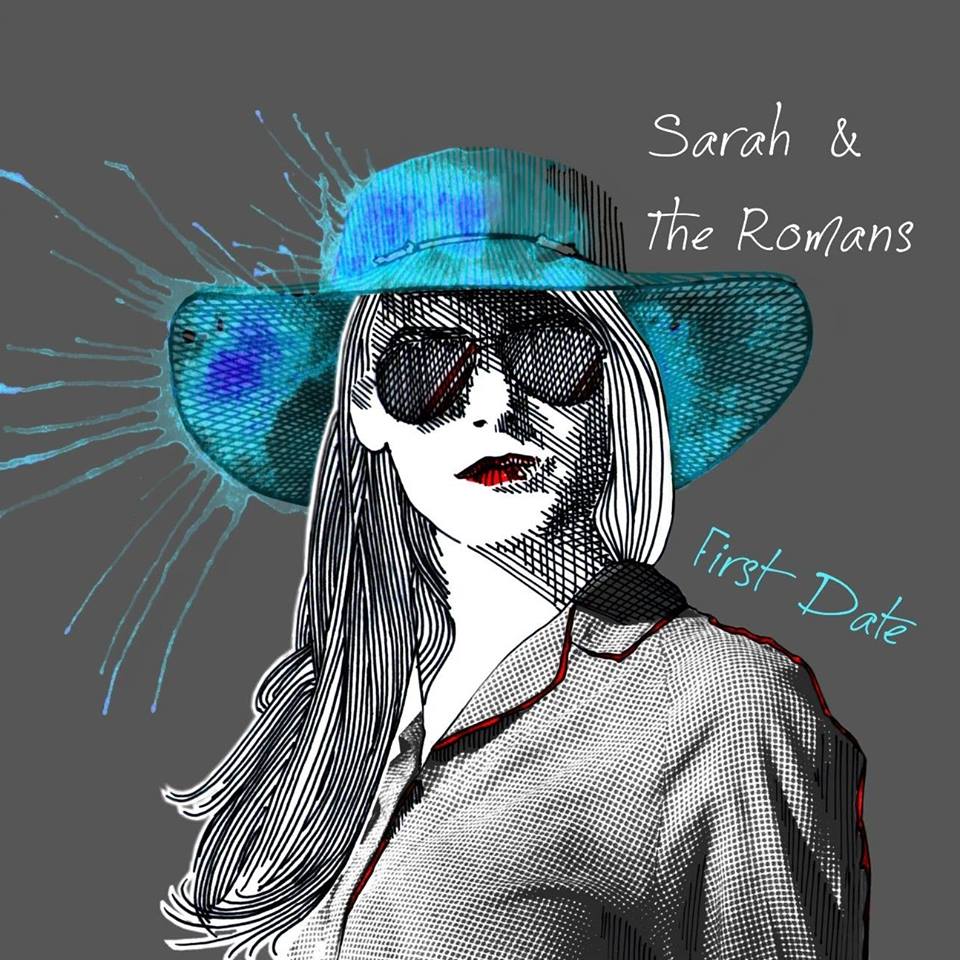
‘First Date’ now available on iTunes and Google Play
What themes do you sing about?
Sara: The themes are love. The name of the album is ‘First Date’, as in romance, but also as in the first encounter of our band with the audience… It can be interpreted in various ways, but always positively and with good intention. The lyrics are always of love, optimistic, which is also the message of the bluegrass music that we play: everything is happy, positive, and even when something bad happens, you forget it, carry on and everything is OK.
Your first single ‘Smoke in The Wind’ from last year was chosen as Bluegrass Song of the Month by the American Akademia Music Awards. What does this acknowledgment mean for you?
Goran: Yes, we sent the song upon the recommendation of one radio DJ from Houston who fell for our music. The song was chosen as song of the month in June in its category. This really did open the door to the music world for us, and with that we gained many contacts. So for example we joined up with a dance troupe from Tennessee who we accompanied for five days in Zagreb, they danced, and we played.
Igor: It was the International Folklore Festival, an excellent experience. The music brought us together and a great collaboration was created and so we will continue to accompany the dance troupe from Tennessee further at European dance festivals. At that time we also got to know a group from Indonesia, amongst whom was Agung who plays the talempong. This is a (audibly) similar instrument to the xylophone and makes a magical tone which so delighted and surprised us that we asked Agung to record something with us, which we then put together in one song. This is the charm of our music, we mix what we like into it. In the same song we also incorporated a flute.
Sara: With that example Igor has described why we think we are original, what our vision is and how we are trying to create a unique sound.
Remind us of when and how the band was formed; who are its members and were you active as such a large group from the beginning?
Goran: The band Sarah & The Romans came into existence in 2014, and currently there are ten members. We have also collaborated with musicians from Ljubljana (Slovenia), some permanent members are from Zagreb. We work in a kind of Rijeka-Zagreb-Ljubljana triangle. We are trying to make our music interesting, original and surprising. One instrument appears in an entire song, a second in two musical sections and then no more. This gives vibrancy, dynamics, and colour to the sound. And for that to function and be interesting, you need to have a little orchestra.
Where do you play the most, where can we listen to you?
Igor: We will have the promotion of the album in Rijeka after it comes out. We perform mainly at festivals.
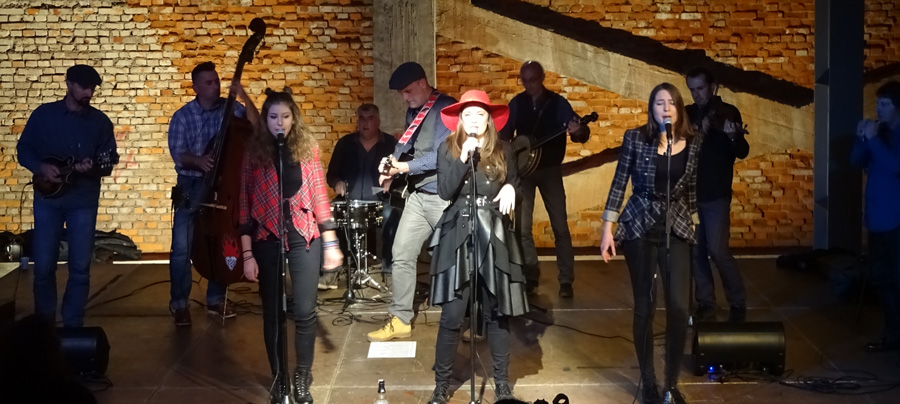
Where did you record the album?
Goran: The songs were recorded in the Mr Lucky and Just Sound studios in Rijeka and in Metro in Ljubljana. Both the mix and mastering of the songs were finished by Mladen Srića (Rijeka, Croatia), Janez Križaj (Ljubljana, Slovenia) and Eduardo Reynoso Jr. (L.A., California).
You play a unique combination of various genres. What are they?
Goran: We are unique in every case because we don’t repeat or copy traditional bluegrass. What is that in effect? It is our polka and waltzes, our European music, central European folk which is permanently in our ears. Bluegrass is acoustic, there are no electric guitars, no drums, it is full of wooden, warm instruments. The whole concept is very optimistic, positive… Such as we are in spirit, so is our music.
Are you recognised in Croatia?
Sara: Yes, we are recognised, but in small circles. However, again we don’t play traditional bluegrass. It is not for older audiences, we are making music for the younger people. Radio stations are playing our music, we are played a lot abroad, for instance on British stations, and many more in America… One of our songs was in the Top 10 in Missouri.
Was singer Sara Blažić in the band from the beginning?
Igor: Yes, we met during karaoke shows, she made a great impression on us because she had a very interesting voice. Also with her in the band are the singers Nikolina Akmadža and Matea Dujmović who also plays flute on one song.
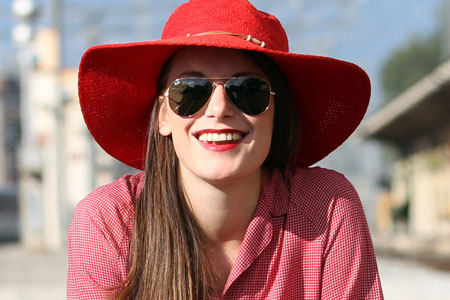
You are collaborating with the 92-year-old singer Bruno Petrali. Can you tell us something more about that?
Goran: Yes, at the same time with the band we are working on the project Sarah & The Romans feat. Bruno Petrali.
Igor: Petrali is a legend. He is 92 years old, he knows everything about music, everything about sport. We have recorded a duet with him, a version of the song ‘Una sola volta ci si ama’, with his original translation. It was joy to work with Petrali and so we recorded two more songs, a version of ‘Bambina’ by Neno Belan which he translated into Italian and a version of the song ‘Sve moje jeseni su tužne’ (’All My Autumns Are Sad’) by Žarko Petrović, which Petrali sang originally way back in 1957.
Goran: We are also working on a special album with Iva Santini, a young singer-songwriter from Rijeka, who is also the writer of one of the songs on our first album. The album with Iva will be something very innovative, different. Her genre is folk-ethno, and she usually plays the Celtic harp and ukulele.
Members of the band:
Singers: Sara Blažić, Nikolina Akmadža, Matea Dujmović
Violin: Antun Stašić, Nikola Čeran, Mislav Salopek
Mandolin: Roman Tomašković
Banjo: Goran Troha
Dobro, guitar: Boris Luka Luković
Guitar: Zoran Bebe Petrović
Double bass: Domagoj Zubo Zubović
Harmonica: Ivica Dujić
Drums: Suzan Vidović
Booking manager: Igor Willheim
Guests on the album ‘First Date’:
Anja Hrastovšek and Jasna Žitnik, Ivana Marić, Artemija Stanić, RiverBlue (Vedran and Ivana Mlakar), Mirna Škrgatić, Mladen Srića, Nataša Manestar, Damjan Vasiljević, Sempre Allegro Choir Rijeka, Dino Džopa Šemsudin, Vanja Dizdarević, Damjan Grbac, Tilen Stepišnik, Dušan Pjer Ladavac, Uroš Šuljić, Žiga Šercer, Nikola Jovanović, Krešimir Kunda, Klaudio Kolar, Petar Tepšić, Rajko Ergić and Ivan Pjerić Dorčić.
(Translated by Martin Mayhew from the original Croatian article here)
Follow Sarah & The Romans on:
Facebook
Youtube
Buy the album ‘First Date’ on iTunes here.
and Google Play here.
Tragovi osmanske kulture u Hrvatskoj
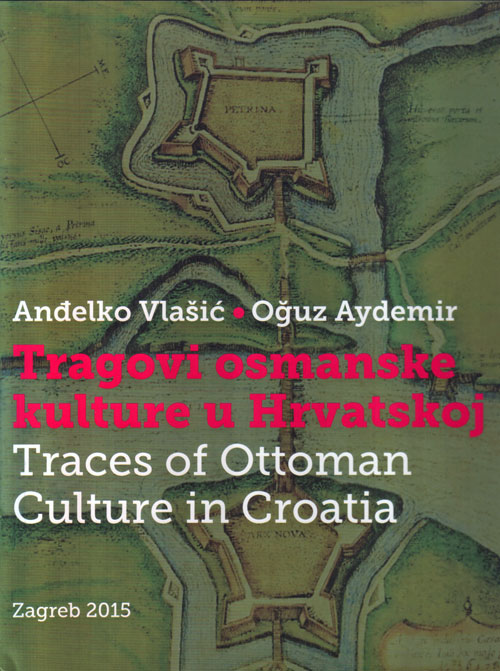 ‘Tragovi osmanske kulture u Hrvatskoj / Traces of Ottoman Culture in Croatia’ is an impressive dual language book by Anđelko Vlašić and Oğuz Aydemir. It details many aspects of Ottoman culture, heritage, architecture and language left throughout history on the territory of today’s Croatia. If features stunning photography of sites and buildings, original documents, illustrations and detailed information, and it serves as a reminder for the Turkish and Croatian public of the common heritage that the two countries share. I helped with some translation and the proofreading of the English language part of this superb book.
‘Tragovi osmanske kulture u Hrvatskoj / Traces of Ottoman Culture in Croatia’ is an impressive dual language book by Anđelko Vlašić and Oğuz Aydemir. It details many aspects of Ottoman culture, heritage, architecture and language left throughout history on the territory of today’s Croatia. If features stunning photography of sites and buildings, original documents, illustrations and detailed information, and it serves as a reminder for the Turkish and Croatian public of the common heritage that the two countries share. I helped with some translation and the proofreading of the English language part of this superb book.
ISBN 978-9944-264-71-6
2015, 182pp
http://bib.irb.hr/prikazi-rad?rad=799798
Publisher: www.denizlerkitabevi.com
Feral Tribune – book summary
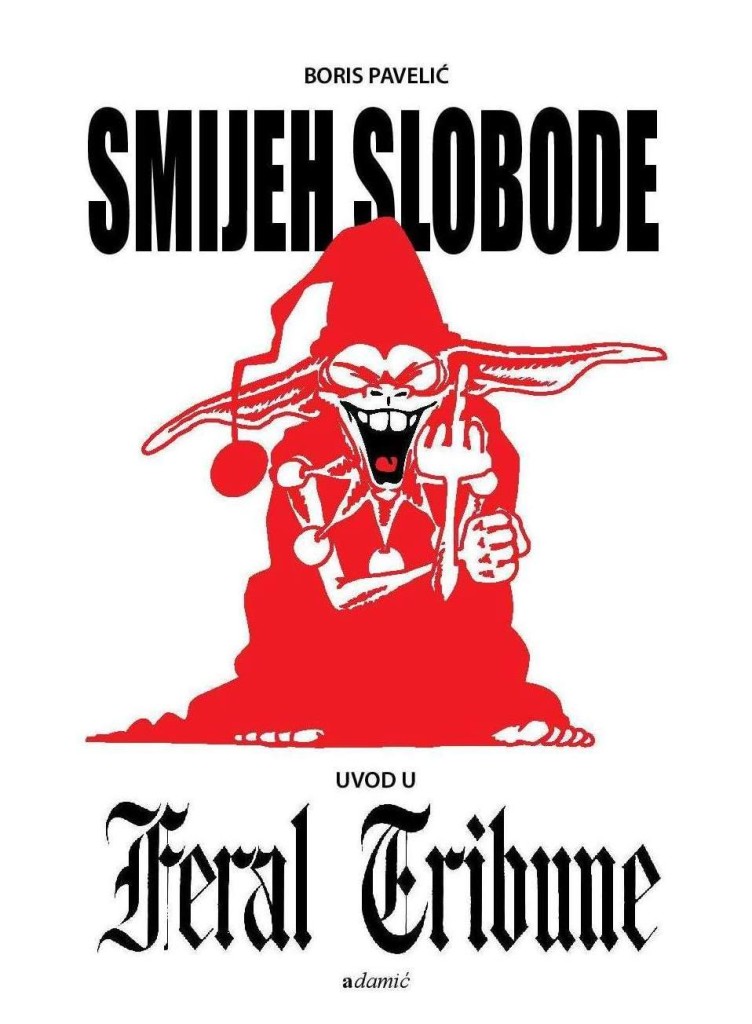 The book ‘Smijeh slobode – uvod u Feral Tribune’ (‘The Laughter of Freedom – an introduction to the Feral Tribune’) by Boris Pavelić describes and explains the 25 year old cult political-satirical newspaper the ‘Feral Tribune’, based in Split. It was published from 1983-2008 in various forms and billed itself as a “weekly magazine for Croatian anarchists, protesters and heretics.”
The book ‘Smijeh slobode – uvod u Feral Tribune’ (‘The Laughter of Freedom – an introduction to the Feral Tribune’) by Boris Pavelić describes and explains the 25 year old cult political-satirical newspaper the ‘Feral Tribune’, based in Split. It was published from 1983-2008 in various forms and billed itself as a “weekly magazine for Croatian anarchists, protesters and heretics.”
The publication won international awards in the 1990s but slowly went out of circulation – this book studies the history and value that it had and still has in modern-day journalism.
The book is only available in Croatian and I translated the summary into English. It is hardback, has 688 pages and its ISBN: 978-953-219-492-0.
It is published by Adamić d.o.o. and is available in shops and via the publisher’s website here: http://shop.adamic.hr/index.php
Antun Barac – ‘Fiume’ in English
‘Fiume’
(passing impressions, July 1919)
by Antun Barac – translated for the first time by Martin Mayhew
Three beautiful, sunny, autumnal days. I don’t know what happened. In a single morning all the ties snapped, that were holding the voice in the throat, that loosened the links, that were chaining the feet, the heavy and rigid mask fell, that was hiding the face. A quiet whisper, which spoke curses and revealed a howl, scattered itself like a wild, holy cry of joy, whilst a hand, a pathetic hand, taught to give a servile and official greeting, extended for the first time in a bold gesture of belief and confidence in itself.
We went onto the streets, in processions, assemblies, groups and we sang and cheered. And everything was so sunny, bright and light. And everything was clear and cheerful and happy in the beautiful, clear autumnal day.
In the barracks there were soldiers, and they were cheering. In the hospitals there were wounded, and they were singing. The soldiers came out onto the streets and were firing their guns. After four blurry years it was the first time that the firing meant joy, after four sombre summers it was the first time that a bullet didn’t mean death, but life. And it was as though that shot, which was now rising into the air, was a symbol, as it rises and as it falls.
On the chests flowers and tricolours. In the windows flowers and tricolours. On the streetlamps, on the telephone poles, on the makeshift stands flowers and tricolours.
In a red, white, blue, green colour, in the grey colours of joy, ecstasy, hope and belief, on each flag, that flutters, of elation, love, sympathy and adoration, which the flag as a symbol means. In the red glow of love and brotherhood towards everything and everyone, in the whiteness of the cleanliness and sublimeness of ecstasy, hope in the new world, that was being created.
We went out onto the streets and sang. We welcomed the foreign troops and sang. We threw flowers and sang. We welcomed ships from foreign countries and sang. “Call out, just call out… Viva la France! Allons enfants de la Patrie!…” And the children of the homeland arrived, and laughed, and danced, and cheered.
“Here people just walk around and cheer and sing” – they say, wrote home one French sailor. “Viva la Yugoslavie!” His compatriots cheered – and in their scepticism and in their laughter for the sake of laughing and joy for the sake of joy we felt the first stab of disappointment and misunderstanding.
In an isolated corner an old hunched over woman was sobbing. “Woman, why are you crying?” – asked a voice – I don’t know whose, and I don’t know where from. “In every joy there is a note of pain, in every laugh a seed of sorrow”, as though replying to somebody’s voice – who knows whose, who knows where from?
Three beautiful, clear, sunny, autumnal days. Three days of song and clamour and ecstasy. And then – armoured cars, machine guns and horses on the cobblestones and pikes, stretching up high, rigidly, arrogantly. In the port heavy ships with cannons aimed at the city, on the street assault troops with helmets, rifles, knapsacks and ammunition belts.
Three beautiful, clear, sunny, days passed. And nothing to show for them. Only a difficult, long winter with clouds. Just a cold summer with raindrops, that with the ‘bura’ and rain even the tears froze. Just a gloomy spring without light or sun.
Maybe a time will come, when all the ecstasy and elation will seem ridiculous to us. Maybe a period will come, when every sense will be reduced to a mathematical or chemical formula. I only know, that even then, when I was in the height of national fervour, I felt no desire for revenge or hatred or malice – the days of the greatest joy were days of forgiveness for everything, to all who had oppressed us, days of national liberty, a time when love for everyone was the most lively, the most conscious. And in those days of intoxicated delight and love, that had boiled over, the clenched fists, clashes and attacks were the end of everything.
I don’t know what happened. In just one day with a wild roar they began to tear down the tricolours of red and white and blue, and in the windows, on the streetlamps, the houses, the buildings, the churches suddenly others appeared – red and white and green, with a star and a coat of arms. Everywhere the coat of arms and everywhere the star, and everywhere fanatic hatred in the faces and fury and poison in the looks. “Italia o morte! Fuori il straniero!” Whilst the straniero thoughtfully stops and thinks: “Who in fact is the stranger?”
In these sombre days of waiting and incertitude, desperation and zeal, it is so difficult to be alive and carry all the heavy burden of the present; however it is hardest to be human. So many times I have felt the pain and burden of life, but the worst thing was when I felt the aching shame, I didn’t feel fear for myself, but for those who persecuted us, the shame of man, that chaotic, disproportionate mixture of beast and god. The beast, wild, brutal, vicious, kicking and rearing up, and the god, sublime, the ashen sceptic levelling with it, taming or incensing it. And in the battle of animal with god like the battle of a bull with a toreador – the white, red, blue, green colours, that they have signifying a symbol, they stimulate it, intoxicate it, they extol it, bring it to an ecstasy of madness and rage. Fiume, the yellowish-grey, deceitful animal, from the eyes of which peer the envy and intoxication of excessive enthusiasm, throws itself, snapping, howling and moaning into exhaustion, until it falls bewildered, unconscious to the ground.
Therein the roar is so quiet! Therein the crowd is so uneasy and lonely. In this racket our steps reverberate so eerily. Oh, the whole of this city, whose number of inhabitants doubled in a few months, as it turned into a huge, grey, isolated monastery, where the shadows succumb to the wolf, hollow songs reverberate and the voices of muffled prayers drone. And thus it is miraculously quiet and in the murmur, so terribly calm in the constant throng.
Why call this city Rieka, when it is – Fiume. Reka, Rika, Rieka – that sounds so sweet, placid and childlike like the nostalgic “ca” and “ča” of the people of Drenova, Plase, Trsat, reminiscent of the sunny gleam of the stone walls and enclosures scattered with rocks and brambles, amongst which, in spring, blossom such beautiful and fragrant violas, a modest and shy flower. It is a city with a filthy physiognomy and with an inner self bland and murky, like the murky Fiumare canal, the dead water that cries for it. The Fiuman is a separate race, not belonging to any one nation. It is a mixture of everything that has come to this merchant city to trade – of everything, of many things. The Fiuman is both an Italian and a Yugoslav – an Italian, born of Yugoslavs and brought up as a Yugoslav, who cheers at the top of his voice: “O Italia o morte!”, the Yugoslav is a quiet and timid beast, hiding because of his interests of his national origin with a neutral, inexpressible, merchant’s sneer. Whilst the Riečanin, Recan, Ričanin – they are the masses – they are the nameless mass, who don’t ask, quantité négligeable, they are the inhabitants of the workers’ houses, basements and attics, the servants and labourers, small artisans and assistants, the masses, who have only one head, and who would, maybe, with just a single blow fall. And that is the characteristic, external image of the city – Fiume, Fiuman. And in this fatal exchange is the source of all the illusions, all the efforts and all the miserable disappointments.
Years and years of timid and quivering yearnings for the city of Kvarner and in that name I will stop with everything, that was the dearest and utmost in life – but then the bloody realisation, that it was all just a yearning for childhood, for the sea, for the days that had gone forever. Yet there is no city, there is no childhood and there is no sea. There is only Fiume and Gomila and Fiumara – a murky, stagnant mire, like a feeble residue of exacerbated human passions, without the strength that it vanishes, without the strength that it stirs up, rises, moves.
Corso. An evening stroll. In the looks a glow and depth, in the gestures a yearning and yielding to love. Yet the whole city seems to shiver from one single deep gaze, which rises from the bottom of the soul and seeps into the bottom of the soul, and the whole city seems to twinkle from love, that is only the soul, only the soul. Whilst down, in the depths, inside – ah, there is no soul and there is nothing, the base and desolation and emptiness. And the whole of this city and all these people who rousingly speak and shout and wave – the whole of this city has no soul, and everything, that moves it, is the basic animal life. And its voice is not the sublimeness of ecstasy nor the size of reproach – everything is just a roar, clamour and mania. And the moment will come and everything will boil over and everything will disappear, what froths up and what rises up – on the empty bottom will remain just Fiume, a city without a soul and without physiognomy and a notion without features.
Over five bloody years ten times in the memory of the sparseness and irritation of the nerves the city howled and ten times they changed the inscriptions and ten times in a fanatical irritation the masses passed over their old idols. Today on the ruins of everything, a fiery rage triumphs in the proud satisfaction, that with the greatest lie it refuted thousands of its little lies and that in the deafening cry it suppressed everything, that protests, that rebels. Because that cry is not a lie, because this fire of enthusiasm isn’t hypocrisy. It is Fiume and everything is Fiume. And to whomsoever this Città di San Vito belongs; whosoever flag will flutter next to the double-headed eagle with the yellow-blue symbol – will win, I’m afraid of Fiume, and with a shout of honest enthusiasm the malicious cry of a lazy and cunning animal will intervene. And that is my fear and it will be a drop of bitterness in that moment, which we will surely never live to see.
What can enthral a man in this city, in which culture and supremacy are denoted by the black marks on the walls and the holes in broken inscribed tiles? In our weakness for it there is a weakness towards one’s own past, which is contained in these pavements, street corners and quays, a weakness towards the whistle of departing steamships and the whiteness of unfurled sails, that awoke our childlike imagination and tied it to this place, that doesn’t love us. In our trepidation towards its destiny there is only the fear for those miserable, unknown, oppressed thousands, who just silently accept the blows and ridicule and the stamp of inferiority. We understand that the sinful must repent the sins and perform penance those, who have deserved it. However what did the little pale children commit that they must suppress their voices in their throats, the only one with which they are able to express the feeling of happiness in the joy and drive of wickedness in the game?
Our feeling of attachment with this city isn’t a feeling of love, but a feeling of pain, and fear, and hopelessness in the sense of a wounded animal and disgust and revulsion. Because it is just Fiume – and Fiume is not an organism, not a concept, not a soul, but something colourless and tepid and tensile, that with its odour tears at the nostrils and throat, and intoxicates and commits evil. And here nothing enthrals and here nothing is attractive. The love of this city – ah, it is an illusion, it isn’t love, but an escape from it, an escape to the blueness of the sea, the sigh of Trsat, the greenery of Opatija and Volosko and the serene vistas towards Kostrena, Omišalj, Cres and Ika. Everything that nature has warm and soothing and soft, is gathered around this city, to shield it, to protect it, to conceal it. And the reason why its poison didn’t act. In the moment when the heavy shackles fall from the chests and from the legs and from the hands and from the tongues, from all sides pale children will rush and shower it with flowers of love, forgiveness and it will forget all the insults, all the blows and all the threats.
From Školjić to Kantrida – one and the same street and one and the same image: houses without expression, without style, stores, shop windows, markets. In the place where there is only trade, all the houses are built on clear commercial principles: with the least expenses – the highest rents. Houses without physiognomy, without souls. In the city, where everything is measured purely in monetary measures, the friars had also taken advantage of the few metres of free space around the church and built umpteen little rooms for shops. Trade is not permitted in the temple, however it is better in front of and around the temple. The city of fifty thousand inhabitants did not give up one single man, whose name would be recorded in the history of culture and art, and wishing to somehow christen their streets, the fathers of the city were having to reach back for names from the mother countries: of Hungary and Italy. In a city of fifty thousand souls there is not one monument, and the only highpoints on the streets are advertising posts and lavatories – as unintentional symbols of it, as if it is the only purpose in this place. I love and appreciate trade as a means, but as soon as it becomes the meaning of life, it becomes both the negation and profanation of all higher values. And that which people would have to make them happy, to lead them ever upwards, throws them ever lower. And Fiume is deep, so deep.
Amongst its great evidence for being Italian the supremacy of Italian culture is prominent in Rijeka, the culture of the Italian is greater than that of the Yugoslav. Whilst the first glance at this city shows that it has, in general, no culture, not only of its own, but no culture of any kind, and that, which in the moment could deceive the eyes, is just glued on, that is easily washed-off by the rain or over night, when the city’s new generation is over-patriotically disposed.
The fun fairs, public houses, buffet bars, cafés, cinemas. All dirty, all abandoned, all in disarray. The dirt of the port as though it passes into the city itself, into every corner, every alleyway. This relatively large city is not capable of supporting a permanent theatre, whilst the companies, which are hosted here for a month, twice a year, can only be supported by the subscriptions of Yugoslav misers. In the place, where all the sights are just negative assets, such are the values and the two most important characteristics: Rijeka’s Gomila and Rijeka’s street gangs. The heart, the centre of the city, consisting of ancient ruins, disgusting mansions with narrow and winding streets, where the sun never reaches and where streams of undignified liquids flow freely; dangerous, dark corners, smelly inns, and women, and beggars, and drunks. While Rijeka’s street gangs they are a mighty gutter army, an abandoned mob that attacks the schiavi, that fights selflessly and fervidly for the lofty goals of the city’s fathers and less selflessly, for the needs of life. And that is – Fiume.
In the days of liberty, in the days of the universal love of forgiveness, a grey monster howled, that calls itself Fiume, with a howl of hatred and revenge. In the days, when kisses and expressions of brotherhood should have rained down, it prepared itself for secretive bites, punches and stabs. And why wasn’t the punch stronger, that is just the deceitful cunningness and feeling of weakness alongside all the abundance of gesticulation.
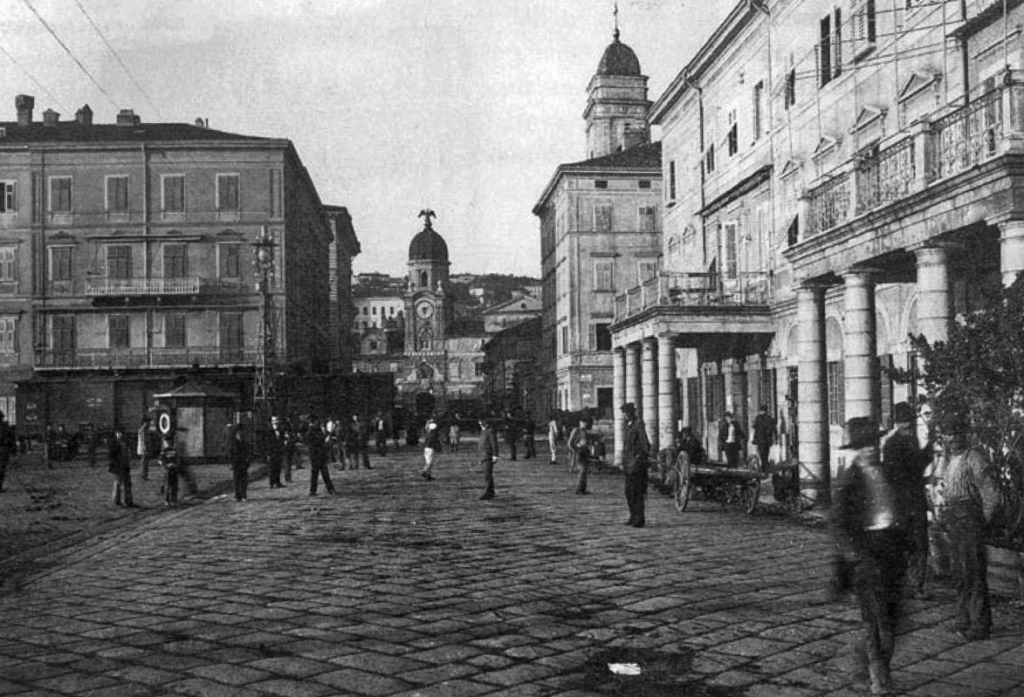 Is this city ours? Ours are those thousands and thousands of silent beings, who resignedly just wait, eternally waiting, thousands unarmed and unlawful, who upon the punch and the bite correspond with a speechless look, who upon an energetic nod from their masters sign up dutifully and without opposition, not asking: “Where to?” – It doesn’t matter, what they’re called. In the ascertainment of their anguish there was the justification of a love for them, from their speechless mouths comes a call for resistance, for rebellion, for liberation. And that is why, as their national consciousness is not strong, as the term of Yugoslavism has not developed in them yet, their pain is even stronger: it is the consciousness, that despises them, that brands them without reason, without cause, that they oppress the concept of man in them. Yet theirs is the main feeling, the feeling of shame, that they belong to a common creed unlawful, powerless, weak – and with the sense of the joy of life is mixed some dreary feeling of their own inferiority, a state of neglect before the mighty.
Is this city ours? Ours are those thousands and thousands of silent beings, who resignedly just wait, eternally waiting, thousands unarmed and unlawful, who upon the punch and the bite correspond with a speechless look, who upon an energetic nod from their masters sign up dutifully and without opposition, not asking: “Where to?” – It doesn’t matter, what they’re called. In the ascertainment of their anguish there was the justification of a love for them, from their speechless mouths comes a call for resistance, for rebellion, for liberation. And that is why, as their national consciousness is not strong, as the term of Yugoslavism has not developed in them yet, their pain is even stronger: it is the consciousness, that despises them, that brands them without reason, without cause, that they oppress the concept of man in them. Yet theirs is the main feeling, the feeling of shame, that they belong to a common creed unlawful, powerless, weak – and with the sense of the joy of life is mixed some dreary feeling of their own inferiority, a state of neglect before the mighty.
Whatever happened, whatever the fate of this city, I will not complain and I will not pity those, to whom the street corners, the banks, the ships and the warehouses belong. Alongside all of their Yugoslav tricolours, were also the Fiumani, and in their pre-war silence and chivalrousness were hidden the subterfuge and calculating attitude of the merchant, who goes just for the money. I won’t grieve for them nor for the legion of those, who over three lovely autumnal days cheered, sang and carried banners. I will only grieve for the pale little people, as their half-spoken “ča” chokes in the instinctive fear before the sharp glance of contempt and superiority…
Long, difficult months of waiting. Events, attacks, parades. Soldiers, soldiers, soldiers. Italians, French, Americans, English, Indo-Chinese. Ships, automobiles, aeroplanes. Carabinieri, bersaglieri, granatieri. Infantry, sailors, lancers, gunners. Crowded and mixed and multi-coloured. Smugglers, detainees, fugitives. And the inns and basements reverberate and glass shatters and girls scream, and blood, wine and champagne flow. Fiume goes crazy and howls and rages.
Yet that’s what it wanted and so sullenly and so sombrely. Like the shadows we loiter only around the corners and we disappear in the corners. Whilst the sun stings and the truth stings. However, the shame against man stings the most of all, for man, as he oppresses his own brother. Of all these people of various colours and uniforms the most likeable are the Annamese (Vietnamese from the French peacekeeping forces), yellow, silent, mysterious, calm creatures with a sick nostalgia for the East and a blunt lack of understanding for all of this colourful, noisiness and craziness. Why are they here and for what use is the secret, eternal pain for the motherland? The same feeling in them, that they protect us, and in us, that they protect. A feeling of pain, shame, submissiveness, disgrace.
Mornings and afternoons and evenings pass. And nights fall, long nights without sleep, when below the windows the hooves of horses clatter as they pass by, heavy cannons boom, the steps of soldiers reverberate. And the city stays silent and the river stays silent, and the sea, in a troubled uncertainty. Just above the houses glimmer the large, light letters: Viva Fiume italiana! And the shining sign and the shining star, so that the brothers can see on the other bank. And they in despair and hopeless expectancy hide their heads amongst the pillows, so they see nothing, so they hear nothing, so they feel nothing. And everything is dead, rigid, uneasy. And everything is sleepless yet in a dream, without a break, without rest, without peace, without joy.
It just sleeps like a fatigued beast, dreaming maliciously and in that sleep of new bites and stabs, the grey formless masses, Fiume sleeps, a city without soul and without physiognomy.
*******
Sva prava pridržana / All rights reserved.
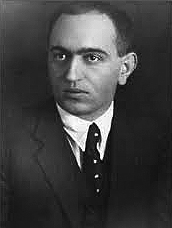 Antun Barac (1894 Kamenjak near Crikvenica – Zagreb 1955) was an important literary historian and writer, who was an advocate for the publication of Janko Polić Kamov’s works. In 1917 he established the influential publishing institute ‘Jug’ in Zagreb with other writers. Amongst the books they planned to published was Kamov’s only novel Isušena Kaljuža written from 1906-1909, but this never happened.
Antun Barac (1894 Kamenjak near Crikvenica – Zagreb 1955) was an important literary historian and writer, who was an advocate for the publication of Janko Polić Kamov’s works. In 1917 he established the influential publishing institute ‘Jug’ in Zagreb with other writers. Amongst the books they planned to published was Kamov’s only novel Isušena Kaljuža written from 1906-1909, but this never happened.
Barac spent the unsettled period after the First World War from 1918-1924 in Sušak (the eastern part of today’s Rijeka) working as a professor at the secondary school. During this period he wrote this short, stark, even poetic essay Fiume, in which he describes the unpleasant events and experiences in the city of Rijeka at the time of the arrival of foreign peace-keeping troops whilst the city’s fate was being decided in post-war negotiations, and just upon the eve of the arrival of D’Annunzio and his soldiers. It is interesting to note that Barac was most likely reading the still as yet unpublished manuscript of Kamov’s Isušena Kaljuža during this period and that it may have influenced his writing of Fiume. This text was first published in the journal Njiva in 1919.
Barac was also the originator of the idea to publish a collection of the complete works of Janko Polić Kamov, which finally saw the light of day from 1956-1958, amongst which the novel Isušena Kaljuža was printed for the first time almost 50 years after Kamov wrote it.
Thanks to Igor Žic
Shipbuilding in Rijeka
Gallery
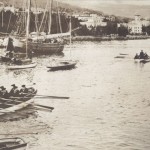
This gallery contains 53 photos.
Rijeka – European Capital of Culture 2020 has a long tradition in shipbuilding. Many of these photographs are by the great photographer Viktor Hreljanović. More about the SMS Szent Istvan here
London Calling Stand Up Comedy June Tour
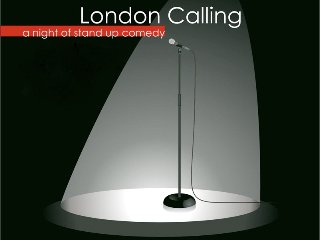 Despite Euro 2012, despite a holiday-riddled June calendar, despite all sorts of obstacles – we are delighted to announce the June tour!
Despite Euro 2012, despite a holiday-riddled June calendar, despite all sorts of obstacles – we are delighted to announce the June tour!
This month, London Calling will also visit two excellent festivals in the region: Belef in Belgrade and Lent in Maribor.
So lets kick-off the summer with a bit of comedy from London:
ZAGREB 25 June 2012.
Doors open at 20:30, programme starts at 21:00
VIP Club – Trga Bana Jelacica
OSIJEK 26 June 2012.
Doors open at 20:30
Djecje Kazaliste Branka Mihaljevica
RIJEKA 27 June
Doors open at 20:30, programme starts at 21:00
Brod Klub Marina, Adamicev Gat, Riva
COMEDIANS:
MARTIN MOR (UK) – HEADLINE ACT
STEVE HILL (UK) – OPENING ACT
COLIN MANFORD (UK) – MC
MARCUS RYAN (AUS) – MID ACT
More info:
http://www.facebook.com/London.Calling.Club
http://www.LondonCallingClub.com
Paul McCartney – Diamond Jubilee Concert
Paul McCartney was definitely the highlight of the Queen’s Diamond Jubilee Concert at Buckingham Palace, London on 4th June 2012. He ended the star-studded show by performing Beatles classics ‘Magical Mystery Tour’, ‘All My Loving’, ‘Let It Be’, ‘Ob-La-Di, Ob-La-Da’ and a spectacular version of his own ‘Live and Let Die’.
http://www.youtube.com/watch?v=M1eM-d2mu6Q
Back in 1976 Paul McCartney and his group Wings visited Zagreb. On the 21st September they played the Dom Sportova arena.
Whilst in Zagreb in 1976 McCartney also met up with Veljko Despot, long time fan and friend of The Beatles.
Were you there at the concert back in 1976?
More links:
The Beatles Revival Band – Croatia’s best tribute band based in Rijeka
The Beatles Fan Club Zagreb – the original fan club started in 1968 by Veljko Despot (Jugoslavenski Beatles Fan Club/The Yugoslav Beatles Fan Club)
Tražim zaposlenje u području medija/tiska/izdavaštva:
e-mail
Titanic centenary – Rijeka connection
It was on the fateful night of the 14-15th April 1912 that the British passenger liner the RMS Titanic hit an iceberg, 375 miles from the coast of New Foundland in the North Altantic, and sank on its maiden voyage from Southampton to New York City.
Did you know that there is a connection between the Titanic and the city of Rijeka? (at that time known as ‘Fiume’, within the Austro-Hungarian Empire)
The connection is another liner the RMS Carpathia. This ship travelled regularly between Rijeka and New York when it would transport immigrants seeking a new life in America.
On the night of the 14-15th April 1912 the Titanic sent out SOS distress calls for help after colliding with an ice berg which the Carpathia, which was at that time travelling from New York to Rijeka then picked-up and headed to its assistance. The Carpathia managed to save over 700 people (a handful of whom were Croats) from the icy waters who had escaped the sinking. Unfortunately the other 1,500 or so passengers and crew perished.
One crew member of the Carpathia, a Croat, Josip Car, held onto to a life jacket from one of the survivors of the Titanic and this historical item was later donated after his death to the Maritime and History Museum in Rijeka (PPMHP)
There are several commemorative events of this tragic maritime event being held in the UK (where both ships were built) as well as an exhibition being staged at the Maritime and Historical Museum of the Croatian Littoral in Rijeka.
http://www.youtube.com/watch?v=9yW6EkLEGLg
The Peek & Poke Computer Museum in Rijeka also held a special event until 15th April 2012 on the Arca Fiumana boat, moored on Rijeka’s waterfront entitled ‘Carpathia 2012’: http://www.peekpoke.hr
For a superb selection of photographs visit: British Pathe collection
Titanic footage and survivors interviews. On 14 April 1912, on her maiden voyage, the passenger liner RMS Titanic hit an iceberg. More than 1500 men, women and children perished. This is a short television documentary about the sinking of the Titanic, including interviews with survivors talking about their experiences and their escape.
****
Official commemorative postage stamps from the UK
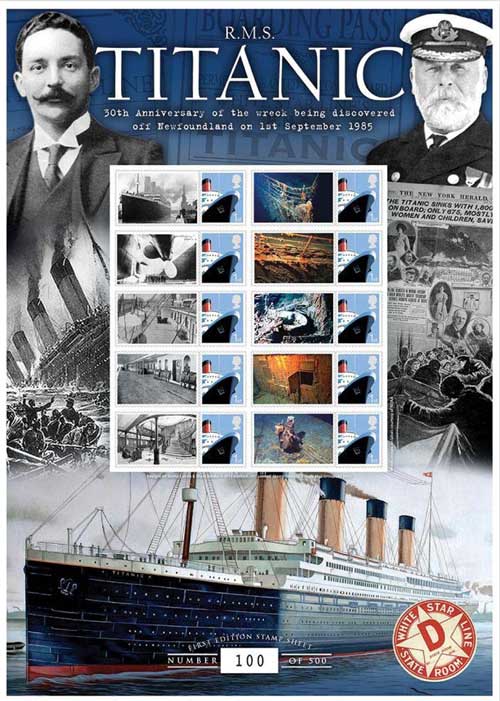
RMS Titanic Centenary postage stamps
More info visit https://www.benham.co.uk/pd/Titanic-30th-Anniversary-of-Discovery-of-the-Wreck-GB-Customised-Stamp-Sheet_GBS0255.htm
Eco active holidays on the island of Cres – video
Experience the beauty and heritage of the Croatian islands of Cres and Lošinj.
Recover from the stress of modern life by living a traditional way of life and activities on the islands. Would you like to be islanders for a couple of days and get to know the life of the people who live here? We offer activities such as: shepherding, olive picking, fishing, hiking, walking and dry stone walling, or explore the islands on mountain bikes.
http://www.youtube.com/watch?v=otcbvSzyifA
Visit Secrets of Cres / Tajne Cresa: http://www.tajnecresa.com/indexENG.html

